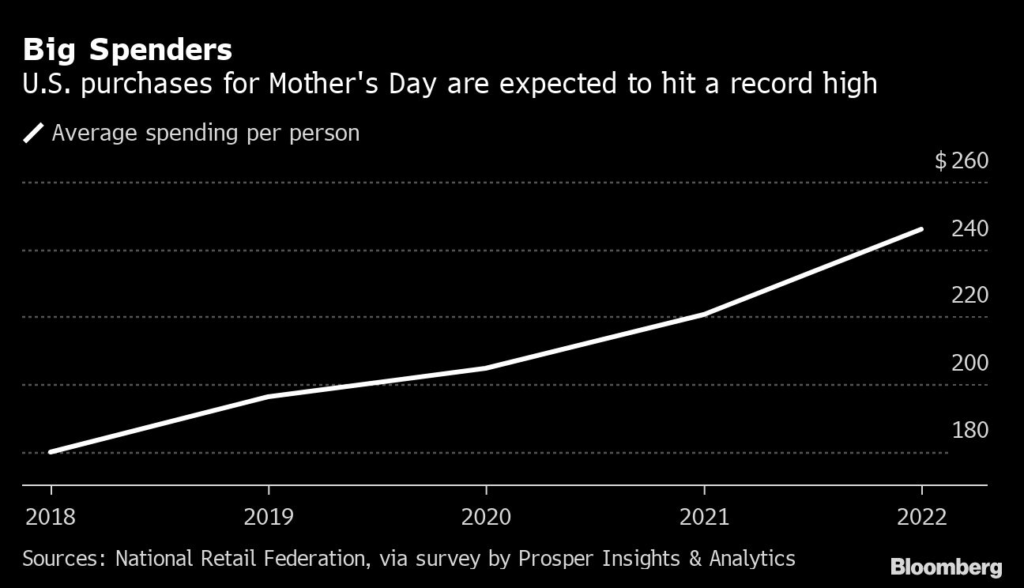(Bloomberg) — The opt-out email is very much in.
After the pandemic’s emotional toll, brands are searching for different ways to connect with shoppers. That’s led companies spanning crafts marketplace Etsy to skincare maker Aesop to give customers the chance to not receive promotional messages for events like Mother’s Day that might rehash painful memories.
“The more choice you’re giving a customer, the more you’re treating them like a person of value,” said Amy Dunn, head of marketing and communications at fintech startup Bumped.
“As opposed to someone whose inbox you’re just yelling into.”
The Portland, Oregon-based company rolled out a Mother’s Day opt-out initiative last year, and the feedback has been positive, Dunn said.
The initiative also took place as the firm’s open rate on emails rose 11%.
Holidays tied to relationships, including Father’s Day and Valentine’s Day, can exacerbate feelings of anxiety and depression.
And three out of five women find Mother’s Day emotionally triggering, according to a recent survey of users on the app Peanut, an online women’s community.
The opt-out strategy was designed for people like 22-year-old Arielle Wiedenbeck, whose mom died more than a decade ago.
Mother’s Day emails have always been “harsh reminders,” and she’d prefer to avoid the annual deluge, she said.
“Grief is different for everyone,” said Wiedenbeck, a student in Lincoln, Nebraska.
The opt-out email has “allowed me to make Mother’s Day more personal for me and not just this purely commercialized thing of: ‘Oh god, it’s Mother’s Day.’”
While it might seem like bad business to give potential customers the option to stop receiving marketing, doing so can actually boost a company’s bottom line since improving customer satisfaction often increases the chances they’ll make another purchase, according to Adobe Inc.
There’s a lot of stake this Mother’s Day with spending on everything from flowers to jewelry expected to reach $31.7 billion, up 13% from 2021, according to a survey conducted for the National Retail Federation.
Not everyone believes this is a good idea.
When Nestlé-owned Blue Bottle Coffee sent its Mother’s Day opt-out email, the company received responses wondering whether it was necessary, according to Karl Strovink, the brand’s chief executive officer.
Critics worry opt-outs can come across as cash grabs masked as virtue signaling or even have the unwanted effect of reminding customers about the very holiday they were trying to avoid.
However, the opt-out email is likely here to stay, even as the pandemic recedes, because shoppers increasingly expect a more personalized experience like this, according to Kristin Dorsey, vice president of marketing at Linc, a customer experience consultant.
Of the firm’s more than 100 clients, at least half have moved toward implementing opt-out emails in the past year, Dorsey said.
Only a small number of users choose this option, and feedback from the ones who do is largely positive.
The downsides are “pretty minimal,” she said.
More stories like this are available on bloomberg.com
©2022 Bloomberg L.P.











